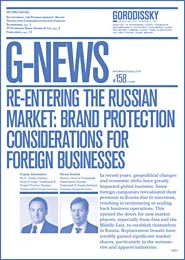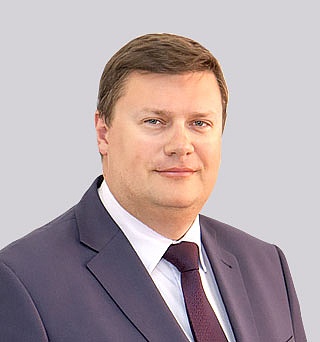New approach to differentiation of intragroup service and shareholder activity expenses
2 April 2021In recent years, intragroup services provided by foreign parent companies to their Russian subsidiaries have come under the scrutiny of the tax authorities. This is unsurprising – according to current practice, the expenses incurred with respect to such services can reach up to 5% to 7% of the Russian subsidiaries' turnover. Accordingly, the exclusion of such expenses from the taxable profit may significantly affect the amount of such profit.
Intragroup services
In this context, 'intragroup services' predominantly comprise management services which a Russian company purchases from an affiliated foreign company (usually a parent or another company within the same group). As a rule, such services include:
- administrative, legal and financial support services;
- internal control and audit services; and
- IT services (eg, connection to a computer program common to a group of companies).
Shareholder activities
Previously, the tax authorities only checked whether such expenses had been incurred (and, respectively, provided) and their economic feasibility (commercial value) for the acquiring Russian organisation. However, a shareholder activities test was recently added to the tax audit process. The main purpose of this test is to identify profit distribution hidden under the guise of service fees.
To clarify the tax authorities' approach to conducting this test, on 21 February 2021 the Federal Tax Service (FTS) issued Letter ШЮ-4-13/1749@. In particular, the letter defines shareholder activities with regard to intragroup services and clarifies when intragroup services will qualify as shareholder activities.
According to the FTS, shareholder activities fulfil the need of the owners of multinational enterprise (MNE) groups to control their investments in subsidiaries and ensure that the MNE group meets its goals (including by maximising the income from the group's activities and reducing risks) – in particular, through strategic management and planning. When undertaking tax control measures, the tax authorities may face situations where:
- the taxpayer compensates a foreign organisation that is part of the same MNE group for its shareholder activity expenses; and
- Russian organisations, being shareholders of one or more companies, incur shareholder activity expenses.
Based on law enforcement practice, shareholder activities have the following main features:
- Such activities are based on the needs of the shareholders themselves and not of individual members of the MNE group.
- The economic benefit of such activities is visible at the MNE group level and not at the individual company level (similarly, the economic benefit of shareholder activities for an operating or business segment can be seen at the segment level).
- The MNE group members do not require third parties to provide such services on a reimbursable basis or carry out such activities independently.
The letter provides examples of what can be attributed to shareholder activities for the MNE group's strategic management, as well as to shareholder activities for the planning and control of its business.
The letter provides an in-depth economic analysis to determine in whose interests a Russian subsidiary, which is an MNE group member, incurs certain expenses (ie, in its own interests or in the interests of shareholders (as a rule, foreign ones)).
Comment
Unfortunately, in practice, it is often difficult to determine which legal entity (ie, a foreign holding company or a Russian operating subsidiary) benefits most from the related activities and expenses. It is especially difficult to distinguish between shareholder activities and acceptable intragroup services with respect to planning the activities of a Russian company.
In light of the instructions contained in the letter regarding the need to assess the services reclassified as shareholder activities from the perspective of income of a foreign organisation taxable at the source of payment, the FTS's approach to the definition of 'shareholder activities' is particularly alarming. This indirectly raises the issue of the possibility of applying double taxation avoidance agreements and the 'actual recipient of income' concept to such income. Taking into account the tax authorities' rigid approach, the reclassification of certain expenses as shareholder activities and their declaration as a hidden form of profit payment will likely entail the authorities' refusal to apply the special terms of international double taxation avoidance agreements. This, in turn, means not only a refusal to recognise expenses, but also the imposition of Russian corporate income tax on the payments in favour of a foreign company.
Based on the above, the Russian divisions of an MNE group should reconsider their relationships with their parent organisations and exclude expenses for services in which only the parent organisation is interested from payments thereto.










